General description
G/T mismatch-specific thymine DNA glycosylase (EC 3.2.2.29; UniProt Q13569; also known as hTDG, Thymine-DNA glycosylase) is encoded by the TDG gene (Gene ID 6996) in human. Base excision repair (BER) is initiated by damage-specific DNA glycosylases that recognize and remove aberrant bases by hydrolyzing the N-glycosidic bond, creating an apurinic/apyrimidinic (AP) site. This is followed by an (AP)-endonuclease-catalyzed DNA strand incision 5′ to the AP site, trimming of the 5′ end by an (AP)-lyase or an endonuclease, DNA resynthesis by a DNA polymerase and strand sealing by a DNA ligase. Monofunctional glycosylases have only glycosylase activity, whereas bifunctional glycosylases possess additional AP lyase activity and can therefore convert a base lesion into a single-strand break without the need for a separate AP endonuclease. TDG is a monofunctional DNA glycosylase that excises thymine and uracil from G·T and G·U mismatched oligonucleotide substrates as well as the highly mutagenic adduct 3,N4-ethenocytosine from double-stranded DNA. TDG DNA-binding affinity is regulated by SUMOylation, which dramatically reduces its affinity toward DNA substrate and AP site. Sumoylation also potentiates the stimulatory effect of (AP)-endonuclease (APE1/HAP1) on TDG.
Immunogen
Epitope: N-terminal
KLH-conjugated linear peptide corresponding to a sequence from the N-terminal region of human Thymine-DNA Glycosylase.
Application
Anti-Thymine-DNA Glycosylase Antibody is an antibody against Thymine-DNA Glycosylase for use in Western Blotting, Immunocytochemistry.
Immunocytochemistry Analysis: 2.5 µg/mL from a representative lot detected Thymine-DNA Glycosylase in A431, HeLa, HUVEC, and NIH/3T3 cells.
Research Category
Epigenetics & Nuclear Function
Research Sub Category
Cell Cycle, DNA Replication & Repair
Quality
Evaluated by Western Blotting in HeLa nuclear extract.
Western Blotting Analysis: A 1:5,000 dilution of this antibody detected Thymine-DNA Glycosylase in 10 µg of HeLa nuclear extract.
Target description
~55 kDa observed. 46.05 kDa calculated. 55–60 kDa unmodified and 81-86 kDa posttranslationally modified forms reported (Hardeland, U., et al. (2002). EMBO J. 21(6): 1456-1464). Uncharacterized band(s) may appear in some lysates.
Physical form
Affinity purified
Purified rabbit polyclonal antibody in buffer containing 0.1 M Tris-Glycine (pH 7.4), 150 mM NaCl with 0.05% sodium azide.
Storage and Stability
Stable for 1 year at 2-8°C from date of receipt.
Other Notes
Concentration: Please refer to lot specific datasheet.
Disclaimer
Unless otherwise stated in our catalog or other company documentation accompanying the product(s), our products are intended for research use only and are not to be used for any other purpose, which includes but is not limited to, unauthorized commercial uses, in vitro diagnostic uses, ex vivo or in vivo therapeutic uses or any type of consumption or application to humans or animals.
biological source: rabbit. Quality Level: 100. antibody form: affinity isolated antibody. antibody product type: primary antibodies. clone: polyclonal. purified by: affinity chromatography. species reactivity: mouse, human. technique(s): immunocytochemistry: suitable, western blot: suitable. NCBI accession no.: NP_003202. UniProt accession no.: Q13569. shipped in: wet ice. target post-translational modification: unmodified. Gene Information: human ... TDG(6996). Storage Class Code: 12 - Non Combustible Liquids. WGK: WGK 1. Flash Point(F): Not applicable. Flash Point(C): Not applicable.Shipping Information:
Dry Ice Surcharge & Ice Pack Shipments: $40
More Information: https://cenmed.com/shipping-returns
- UPC:
- 51202701
- Condition:
- New
- Availability:
- 3-5 Days
- Weight:
- 1.00 Ounces
- HazmatClass:
- No
- MPN:
- ABE1440
- Temperature Control Device:
- Yes












